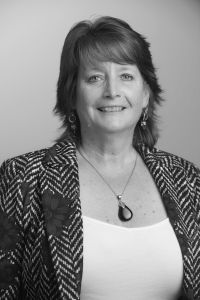Our Masterclasses are specifically aimed at young scientists and dive into a variety of research formats and exciting topics. Experts in the respective fields share their knowledge and experience and provide useful tips to help you in your career. The Masterclasses will take place on Tuesday, 2 July, 09:00-10:30.
Please register for your desired Masterclass at ECSS Glasgow 2024 via the ECSS Congress App. Further information will be announced in good time before the congress to all registered participants.
We are delighted to confirm the following four ECSS Masterclasses and to welcome the University of the West of Scotland (UWS) and the Gatorade Sports Science Institute (GSSI) as two experts in their respective fields at ECSS Glasgow 2024:
How to write and publish (ECSS)
Tuesday, 2 July, 09:00-10:30, session room: Alsh 2
Quantitative Data (ECSS)
Tuesday, 2 July, 09:00-10:30, session room: Carron 2
Mixed Methods Studies (ECSS)
Tuesday, 2 July, 09:00-10:30, session room: Alsh 1
Qualitative Data (ECSS)
Tuesday, 2 July, 09:00-10:30, session room: Carron 1
Personal Knowledge Management (UWS)
Tuesday, 2 July, 09:00-10:30, session room: Boisdale 2
Research in woman athletes (GSSI)
Tuesday, 2 July, 09:00-10:30, session room: Boisdale 1
Qualitative studies gain more and more importance in different research fields in sport science as they allow a deeper understanding of processes. Since longtime, there are different approaches in collecting and analyzing qualitative data, like for example Grounded Theory, Documentary Method or Qualitative Content Analysis, which itself is sub-divided in different approaches. In contrast to quantitative analyzing strategy, the analysis of qualitative data always requires an explanation of the chosen data collection and analyzing strategy as well as of the precise application and undertaken steps. This so-called intersubjective comprehensibility is one of the most important quality criteria of qualitative studies.
This workshop will provide an overview of different qualitative collecting and analyzing approaches in relation to possible research purposes and data (e.g., interviews, group discussions or video records). Depending on participants´ interests, particular questions concerning the own research project or qualitative data material can be discussed during the workshop. If participants would like to focus on particular questions or analyzing strategies or on their own data material, they shall inform the workshop leader via mail.
Please register for this Masterclass at ECSS Glasgow 2024 via the ECSS Congress App. Further information will be announced in good time before the congress to all registered participants.
Date: Tuesday, 2 July
Time: 09:00 – 10:30
Lecture room: Carron 1

Prof. Elke Grimminger-Seidensticker
Paderborn University
Department of Exercise & Health
Paderborn, Germany
This email address is being protected from spambots. You need JavaScript enabled to view it.
Mixed methods research allows scientists to draw inferences using both quantitative and qualitative approaches. Mixed methods approaches can bring many advantages when answering complex questions and generating comprehensive data, and can provide deeper insights and understanding that may be missed when using only one method. However, conducting mixed methods research also has its challenges. These challenges can be minimised via thorough planning and the inclusion of appropriately skilled researchers.
In this Masterclass we will work together to:
- Define mixed methods research and identify examples of research questions that fit within a mixed methods approach.
- Describe the advantages and challenges of using mixed methods approaches.
- Compare and contrast mixed methods research designs using real world examples.
- Evaluate various analysis tools and approaches in mixed methods studies.
- Create a research question and mixed methods study design for a future study, and consider measurement tools that may be appropriate to answer the research question.
Please register for this Masterclass at ECSS Glasgow 2024 via the ECSS Congress App. Further information will be announced in good time before the congress to all registered participants.
Date: Tuesday, 2 July
Time: 09:00–10:30
Session room: Alsh 1

Prof. Janice L. Thompson
University of Birmingham
Emeritus and Honorary Professor of Public Health Nutrition and Exercise
School of Sport, Exercise & Health Sciences
Birmingham, United Kingdom
This email address is being protected from spambots. You need JavaScript enabled to view it.
Clear biological differences exist between women and men. However, sports science research to understand a women’s physiology throughout different life stages (puberty, reproductive years, pregnancy, perimenopause, and menopause) is lacking. This shortage of knowledge on female physiology, in addition to effectively adapting experimental methods to incorporate female-specific considerations, has resulted in an abundance of low-quality research in this cohort. And, as the sport participation rates of women and girls are growing exponentially, high-quality research in this cohort is even more important.
This workshop will provide some of the recent advancements in female athlete research, as well as discuss the challenges and opportunities for conducting research in physically active women, including discussions on the appropriate research methods for the cohort in question. In a second step participants will work in small groups to discuss different research proposals, which will be presented back to the group.
Please register for this Masterclass at ECSS Glasgow 2024 via the ECSS Congress App. Further information will be announced in good time before the congress to all registered participants.
Date: Tuesday, 2 July 2024
Time: 09:00 – 10:30
Session Room: Boisdale 1

Dr. Rebecca Randell
Gatorade Sports Science Institute
Associate Principal Scientist
Leicester, United Kingdom
This email address is being protected from spambots. You need JavaScript enabled to view it.
Determining the right evaluation strategy for one's own research hypothesis can be challenging, partly because statistical programmes such as SPSS do not check whether the chosen test fits the level of the data, but calculate every form of analysis. This is where the workshop comes in: The aim is to arrive at a suitable analysis strategy based on the hypothesis. SPSS will be used as an example when it comes to application-related hints. Basic questions and answers on this topic will be dealt with independently of the statistical programme.
Important stations of the workshop are: Which data level can quantitative data assume and which evaluation possibilities result from it. Which test fits the hypothesis and which prerequisites must be fulfilled. SPSS is addressed as an example of a possible programme to use. If participants would like to discuss their own hypotheses and evaluation strategies, they shall contact the workshop leader in advance via email (This email address is being protected from spambots. You need JavaScript enabled to view it.) to examine to what extent this can be made possible.
Please register for this Masterclass at ECSS Glasgow 2024 via the ECSS Congress App. Further information will be announced in good time before the congress to all registered participants.
Date: Tuesday, 2 July
Time: 09:00 – 10:30
Session room: Carron 2

Prof. Miriam Seyda
Dortmund Technical University
Department of Sports Science
Dortmund, Germany
This email address is being protected from spambots. You need JavaScript enabled to view it.
